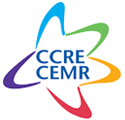
Lithuania Unitary state
| LITHUANIA | / STRUCTURES |
Structures and competences
Local level :
60 municipalities (savivaldybė)
The local council (savivaldybės taryba) is the municipality’s legislative and decision-making body and is made up of members elected by direct universal suffrage for four years. It adopts the budget, enacts local legislation, and has the power to establish smaller territorial units (seniūnija). The local council also sets up the number of deputy-mayors and appoints them.
The director of administration (administracijos direktorius) is in charge of all executive tasks. He/ she is nominated by the local council for four years. The director is directly and personally responsible for the implementation of national (except where the council decision is required) and local legislation in the municipality. He/she can be dismissed by a local council decision at the proposal of the mayor and must resign when the new council meets for the first time.
The mayor (meras) is elected by direct universal suffrage for four years. He/ she is the head of the municipality and local civil service, and chairs local council meetings. The mayor resigns when the new council meets for the first time.
By local council decision, each municipality can be administratively divided into smaller territorial units called seniunija. Seniunija is a branch of the municipality administration acting in a certain territory of the municipality. It is generally responsible for the provision of daily local services to citizens in a given municipal area. Each territorial unit is headed by a civil servant (seniūnas) appointed by the director of administration of the municipality concerned.
An advisory council composed of citizens can be established within these smaller territorial units, so as to provide their respective local administrations with advice on how to provide better municipal services or on how to draft and implement local policies.
COMPETENCES
- Municipal budget, local charges
- Pre-school, primary and basic education
- Civil protection
- Culture
- Environment
- Sanitary
- Housing
- Transport, local roads
- Labour market measures and promotion of entrepreneurship
- Primary health care
- Public services and municipal property management
- Spatial planning
- Local development, participation in drafting regional development programmes
- Sports
- Tourism
- Social care
- Information society





